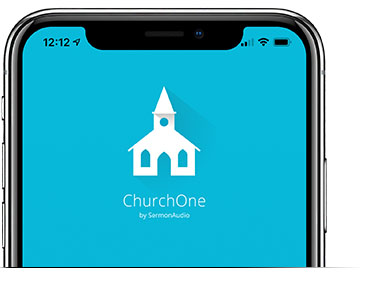 Loading... Please wait...
Loading... Please wait...- SWRB Home
-
Free Resources
- Short Listings Of Free Reformation & Creation Resources
- Free Reformed, Puritan, Covenanter and Creationist Videos
- Thousands of Links to Free Audio, Video and Printed Resources
- Free Puritan Books, Reformed MP3s, and Calvinist Videos
- Puritan Quotes, Free Reformation MP3s, Reformed Books and Calvinist Videos From PuritanDownloads.com On FaceBook
- Shipping & Returns
- Blog
- Privacy Policy
- Contact Us
- Payment Options
- Help
-
About Us
- Sitemap
Pastor Scott Brown, on the left in the video above, is the Director of the National Center for Family-Integrated Churches (NCFIC)
Resource Categories
- PURITAN HARD DRIVE REVIEWS
- PASTOR ROB VENTURA ON THE PURITAN HARD DRIVE
- DR. VODDIE BAUCHAM, JR. ON THE PURITAN HARD DRIVE
- R. C. SPROUL ON SWRB
- DR. JOEL R. BEEKE ON THE PURITAN HARD DRIVE
- PASTOR GREG L. PRICE ON THE PURITAN HARD DRIVE
- DR. MATTHEW MCMAHON ON THE PURITAN HARD DRIVE
- PASTOR SCOTT BROWN ON THE PURITAN HARD DRIVE
- PASTOR W. J. MENCAROW ON THE PURITAN HARD DRIVE
- JOAQUIN FERNANDEZ ON THE PURITAN HARD DRIVE
- PASTOR DAVID SILVERSIDES ON THE PURITAN HARD DRIVE
- JOHN HENDRYX ON THE PURITAN HARD DRIVE
- PASTOR KEVIN GUILLORY ON THE PURITAN HARD DRIVE
- RICHARD BENNETT ON THE PURITAN HARD DRIVE
- DR. KENNY RHODES ON THE PURITAN HARD DRIVE
- JUSTIN RAWSON ON THE PURITAN HARD DRIVE
- PASTOR JAMES WALLACE ON THE PURITAN HARD DRIVE
- PASTOR RICHARD GAGNON ON THE PURITAN HARD DRIVE
- PASTOR JOE HAYNES ON THE PURITAN HARD DRIVE
- DR. STEVEN DILDAY ON THE PURITAN HARD DRIVE
- PASTOR ANDREW COMPTON ON THE PURITAN HARD DRIVE
- TERENCE ELLARD ON THE PURITAN HARD DRIVE
- PASTOR JERRY JOHNSON ON THE PURITAN HARD DRIVE
- PASTOR DAVID PETRIE ON THE PURITAN HARD DRIVE
- JIM DODSON ON THE PURITAN HARD DRIVE
- PASTOR BRIAN SCHWERTLEY ON THE PURITAN HARD DRIVE
- PASTOR PHIL GIBSON ON THE PURITAN HARD DRIVE
- MEL R. EVERINGHAM II ON THE PURITAN HARD DRIVE
- PAUL BLYTH ON THE PURITAN HARD DRIVE
- STEVE KETTLER ON THE PURITAN HARD DRIVE
- D. M. (CALIFORNIA) ON THE PURITAN HARD DRIVE
- MICHAEL CAUGHRAN ON THE PURITAN HARD DRIVE
- WIILIAM NOPPER IV ON THE PURITAN HARD DRIVE
- LINDA THERIAULT ON THE PURITAN HARD DRIVE
- WILLIAM WARNOCK ON THE PURITAN HARD DRIVE
- ROBERT KOH ON THE PURITAN HARD DRIVE
- WHAT'S ON THE PURITAN HARD DRIVE?
- ALL PURITAN HARD DRIVE VIDEOS
- PHD-ODE INSTALLATION VIDEOS
- COMMENTS ON SWRB
- ALL PURITAN QUOTE VIDEOS
- PURITAN HARD DRIVE SCREENSHOTS
- PURITAN HARD DRIVE MINISTRY AND DONATION OFFERS
- TABLE OF RESOURCE CATEGORIES
- Advanced Studies
- SWRB SERMONAUDIO MOBILE APP
- Apologetics
- Assurance
- Attributes and Holiness of God
- Augustine
- Banner of Truth
- Baptism
- Beginners
- Bibles (Geneva, KJV, Hexapla, etc.)
- Biblical Counseling
- BIBLICAL HD COLLECTION
- Biblical Interpretation (Hermeneutics)
- Biographies and Autobiographies
- Calvinism and the Sovereignty of God
- CALVINISM HD COLLECTION
- CALVINIST CLASSICS HD COLLECTION
- Charles Spurgeon
- Children's Books
- CHRISTIAN EDUCATION HD COLLECTION
- Christian History
- Church Government
- Civil Government and Resistance
- CLASSIC CHRISTIAN HD COLLECTION
- Classic Puritan and Reformed Sets
- Commentaries
- Contemporary Issues
- Covenant Theology and Covenanting
- COVENANTER HD COLLECTION
- Covenanters and Covenanted Reformation
- Creation and Creationism
- Creeds, Confessions and Covenants
- Cults, False Religions, Psychology, Humanism
- Dealing with Affliction, Suffering, and Sickness
- Debates
- Dutch Reformed
- Education and Home Schooling
- English Puritans, Covenanters and Reformers
- Family, Children, Home, and Family Worship
- First Reformation
- Five Points of Calvinism (TULIP)
- For Pastors and Elders
- For Seminary Students
- FREE PURITAN & REFORMATION MP3 AUDIO SERMONS/BOOKS
- FREE PURITAN BOOKS, REFORMATION MP3s, PDFs, VIDEOs
- George Gillespie
- God's Law, The Ten Commandments, etc.
- Greg L. Price on Headcoverings
- Heaven, Hell and the Final Judgment
- Holy Days (Lord's Day, Christmas, Easter, etc.)
- HOME SCHOOL HD COLLECTION
- Intermediate Studies
- John Bunyan
- John Calvin
- John Knox
- John Owen
- Jonathan Edwards
- Justification
- Languages, Dictionaries, Reference, etc.
- LOOK WHO LOVES THE PURITAN HARD DRIVE
- Lord's Supper (Communion)
- Marriage, Courtship, etc.
- Martin Luther and Lutheranism
- Martyrs and Persecution
- Other Protestant Works
- Predestination and Providence
- PRESBYTERIAN HD COLLECTION
- Presbyterians and Presbyterianism
- Prophecy, Antichrist, and Eschatology
- PROTESTANT HD COLLECTION
- PSALM SINGING MP3s (COMPLETE SET)
- Psalters, Psalm Singing and Music
- Puritan Facts
- PURITAN FAST SERMONS (1640-1653) - 34 VOLS SET
- Puritan Fast Sermons 1640-1653
- Puritans and Puritanism
- PURITAN HARD DRIVE
- REFORMATION HD COLLECTION
- Reformation History
- Reformed and Puritan Classics
- Reformed Baptist
- REFORMED BAPTIST HD COLLECTION
- REFORMED HD COLLECTION
- REFORMED PRESBYTERIAN HD COLLECTION
- Reformed Presbytery, RPNA Protesters, etc.
- Reformed Theology
- Reformed Worship, The Regulative Principle, etc.
- Roman Catholicism, the Jesuits, Islam, etc.
- Salvation and Evangelism
- Samuel Rutherford
- Sanctification, Prayer and Holiness
- Scottish Covenanters
- Scottish Presbyterianism
- Scripture Song MP3s (Psalms and Bibles Verses)
- Second Reformation
- Separation, Unity, Uniformity, etc.
- Sermons and Sermon Collections
- Solemn League and Covenant
- Theology and Doctrine
- Third Reformation
- Thomas Watson
- Westminster Confession, Assembly and Divines
- Authors (All A to Z)
Popular Authors
Phone Orders:
(780) 450-3730
To obtain free Reformation books, Puritan MP3s and Calvinistic videos, SWRB discount coupons, etc., add yourself to SWRB's Puritan and Reformed email list by using the form above.
- Home
- REFORMED PRESBYTERIAN HD COLLECTION
REFORMED PRESBYTERIAN HD COLLECTION
Reformed Presbyterians are also known as Covenanters - or sometimes as Covenanted Presbyterians, Protesters, Cameronians or Steelites.
Reformed Presbyterian thought and practice often represents the very pinnacle of Reformed theology.
Reformed Presbyterians make up one of the large groups of authors, ministers and martyrs represented on SWRB's new Puritan Hard Drive.
In fact, in certain ways, the Puritan Hard Drive is a Reformed Presbyterian Hard Drive - though many other groups of Puritan and Reformed authors and ministers are also included in the 12,500+ Reformation resources on the Puritan Hard.
You can now enjoy, read and research thousands of the best Reformation writings and sermons by Reformed Presbyterians, from Reformed Presbyterian history (Rutherford, Cameron, Renwick, et al.) right up to our day (through a contemporary Covenanted, Reformed Presbyterian minister like Greg Price), on SWRB's new Puritan Hard Drive.
For more information about all the great Puritan, Reformation and Presbyterian books, MP3s and videos, the powerful custom SWRB KnowledgeBase search and research software, and the embedded database (containing over 15,000,000 records), contained on the Puritan Hard Drive, please watch the introductory video below.
"Now I beseech you, brethren, by the name of our Lord Jesus Christ, that ye all speak the same thing, and that there be no divisions among you; but that ye be perfectly joined together in the same mind and in the same judgment" (1 Corinthians 1:10).
Reformed Presbyterian Quotes
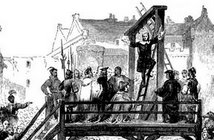 |
"The Fathers have not been forgotten; yea they are still highly esteemed for their heroic struggle, by which every son and daughter has a birthright to the richest inheritance of Christian liberty on earth. The persecution lasted twenty eight years, with few 'blinks' to take the chill of horror out of the air. During this time, 18,000 persons, it is said, suffered death, or utmost hardships, for their faith in Jesus Christ. Of this number, 7,000 went into voluntary banishment; 2500 were shipped to distant lands; 800 were outlawed; 680 were killed in battle, or died of their wounds; 500 were murdered in cold blood; 362 were, by form of law executed. We have no account of the number that perished in shipwrecks, or succumbed to the horrors of transportation; nor of hundreds that were shot at sight by the soldiers who ravaged the country for years; nor of the thousands who wasted away through cold, hunger, and exposure in the mountains and moors. Gloomy caves, dripping moss hags, and unmarked graves, were asylums of mercy to multitudes, who are without any earthly record; but their names are written in heaven. Truly Scotland has been consecrated to the Lord. The blood of the martyrs has watered her heather, crimsoned her streams, stained her streets, and bedewed her fields. Scotland is the Lord's. The blood means much." - J.C. McFeeters, Sketches of the Covenanters, 1913, pp. 395-396, as cited in Greg Barrow's important book, The Covenanted Reformation Defended. |
|
Richard Cameron Reformed Presbyterian Martyr |
|
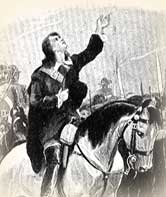 |
"...[H]e [Richard Cameron-GB] went over to Holland in the year of 1678, not knowing what work the Lord had for him there; where he conversed with Mr. M'Ward [Robert McWard-GB] and others of the banished Worthies. In his private conversation and exercise in families, but especially by his public sermon in the Scots Kirk at Rotterdam, he was most refreshing unto many souls. He dwelt mostly upon conversion work, from that text, Matt. 11:28: 'Come unto me, all ye that labour and are heavy laden, and I will give you rest;' which was most satisfying and agreeable to Mr. M'Ward and Mr. Brown [John Brown of Wamphray-GB], and others who had been informed by the Indulged, and those of their persuasion, that he could preach nothing but babble against the Indulgence, cess paying, etc. Here he touched upon none of these things, except in prayer when lamenting over the deplorable case of Scotland by means of defection and tyranny. About this time Mr. M'Ward said to him, 'Richard the public standard has now fallen in Scotland; and, if I know anything of the mind of the Lord, ye are called to undergo your trials [ordination exam-GB] before us, to go home, and lift the fallen standard, and display it publicly before the whole world. But before you put your hand to it, ye shall go to as many field ministers as ye can find, and give them your hearty invitation to go with you; and if they will not go, go alone, and the Lord will go with you.' Accordingly he was ordained by Mr. M'Ward, Mr. Brown, and Roleman, a famous Dutch divine. When their hands were lifted up from his [Richard Cameron's-GB] head, Mr. M'Ward continued this still and cried out, 'Behold all ye beholders, here is the head of a faithful minister and servant of Jesus Christ, who shall lose the same for his master's interest, and it shall be set up before sun and moon, in the view of the world.' (John Howie, The Scots Worthies, 1781, p. 423). On July 22, 1680, faithful Richard Cameron was martyred in Airsmoss. His head and hands cut off and taken to Edinburgh, just as Robert M'Ward had spoken. Before his murderers committed the barbarous act of publicly displaying his head and hands upon the Netherbow Port, they first had one further act of antichristian cruelty to enact. His father being in prison for the same cause, they carried them [Cameron's head and hands-GB] to him, to add grief unto his former sorrow, and inquired at him if he knew them. Taking his son's head and hands which were very fair - being a man of fair complexion like himself- - he kissed them, and said, 'I know- - I know them; they are my son's - my own dear son's. It is the Lord - good is the will of the Lord, who cannot wrong me nor mine, but hath made goodness and mercy to follow us all our days.' After which, by order of the Council, his head was fixed upon the Netherbow Port, and his hands beside it with the fingers upward. (John Howie, The Scots Worthies, 1781, pp. 428-429). - As cited in The Covenanted Reformation Defended by Greg Barrow, available free online at http://www.reformedpresbytery.org/books/index.html or at http://www.swrb.com/newslett/actualNLs/covrefgb.htm - as well as among the free resources included on the Puritan Hard Drive. The Covenanted Reformation Defended by Greg Barrow is the best book ever written, in contemporary, easy-to-read language, defending the classic Covenanter or Reformed Presbyterian (Paleopresbyterian or Protester) position. Greg Barrow's book, The Covenanted Reformation Defended, also includes a myriad of quotations from Reformed Presbyterian source documents (including many rare books from the Second Reformation) with extensive application to our day. If you are interested in the views of the most faithful Reformers and the most biblical Reformed churches (i.e., the very best of classic Reformed theology) The Covenanted Reformation Defended is probably the most useful book you could read.
|
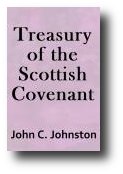 |
"... whereto we have already attained, let us walk by the same rule, let us mind the same thing. - Phil. 3:16. David Dickson's last hours were embittered by the recollection of his short-sightedness in adopting these Resolutions. To a lady who visited him on his death-bed he said, 'Madam, I must confess, the Protesters have been truer prophets than we were'... Future events showed the impolicy of these Resolutions. The men who were admitted by them into places of power and trust in the army and state, became, as the Protesters always predicted, the persecutors of the Church. Had the counsels of the Protesters prevailed, the twenty-eight years' persecution might not have existed" - J.C. Johnston, Treasury of the Scottish Covenant, 1887, p. 120. |
 |
Resolutioners and Protesters (Covenanted Presbyterians) "The Resolutioners and Protesters were two parties formed in the Church of Scotland in consequence of certain resolutions agreed upon by the Commission of the General Assembly, and afterwards approved of by the Assembly itself, with respect to the admission into places of power and trust in the Army and State of such as had by various Acts of Parliament been excluded on account of their malignancy or opposition to the covenant and liberties of the nation, provided they gave satisfaction to the Church. Those who approved of these resolutions were called 'Resolutioners;' those who were opposed to them were called 'Anti-Resolutioners,' or 'Protesters,' from their having given in or adhered to a protestation against the lawfulness of the Assembly held July 1651, at St. Andrews, and adjourned to Dundee, by which these resolutions were ratified. The protestation was given in by the famous Samuel Rutherford, and signed by twenty-two members. Future events showed the impolicy of these resolutions. The men who were admitted by them into places of power and trust in the Army and State became, as the Protesters always predicted, the persecutors of the Church. Had the counsels of the Protesters prevailed, the twenty-eight years' persecution might not have existed." - James Anderson in the Martyrs of the Bass, in "The Bass Rock," p. 181.
|
 |
"It is our goal to unite the Church of Christ in every land by means of promoting a truly covenanted reformation in accordance with the prayer of our Lord, "That they may be one, even as we are one (John 17:22)... We do not consider the Reformed Presbytery In North America (RPNA-ed.) to be an entirely new entity, but rather a continuation of the one moral person with other covenanted judicatories of the past, and with those faithful witnesses of the Covenanted Reformation known as Protesters and Society People (1650-1742 inclusive). Accordingly, when we refer above to our 'Constitution,' we include within it all the judicial documents comprehended and engaged unto in our 'Six Terms Of Ecclesiastical Communion' - specifically, only those documents which are agreeable to the Word of God, and consistent with our covenanted attainments, as they were formally received and approved by the following covenanted judicatories between the following inclusive dates: 1. The Church Of Scotland (1560-1602, 1638-1649). 2. The Reformed Presbytery In Scotland (1743-1808), and the Synod Of The Reformed Presbyterian Church In Scotland (1809-1821). 3. The Reformed Presbytery In Ireland (1763-1779, 1782-1810), and the Synod Of The Reformed Presbyterian Church In Ireland (1811-1839). 4. The Reformed Presbytery In America (1774 -1778, 1798 -1805, 1840 -1845, 1854 -1887)." - Reformed Presbytery In North America, (RPNA) Deed Of Constitution.
|
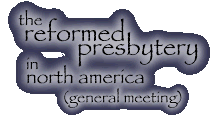 |
The Six Points of the "Terms of Ministerial and Christian Communion in the Reformed Presbyterian Church" as listed at the end of The Act, Declaration, and Testimony for the Whole of Our Covenanted Reformation by the Reformed Presbytery, 1761, 1876, (1995, SWRB) In order both to define our boundaries of fellowship and to make clear the conditions upon which we will unite with others, we desire to be explicit and forthright about our beliefs. These beliefs, otherwise known as our "terms of communion," are as follows: 1. An acknowledgement of the Old and New Testament to be the Word of God, and the alone infallible rule of faith and practice. 2. That the whole doctrine of the Westminster Confession of Faith, and the Catechisms, Larger and Shorter, are agreeable unto, and founded upon the Scriptures. 3. That Presbyterial Church Government and manner of worship are alone of divine right and unalterable; and that the most perfect model of these as yet attained, is exhibited in the Form of Government and Directory for Worship, adopted by the Church of Scotland in the Second Reformation. 4. That public, social covenanting is an ordinance of God, obligatory on churches and nations under the New Testament; that the National Covenant and the Solemn League are an exemplification of this divine institution; and that these Deeds are of continued obligation upon the moral person; and in consistency with this, that the Renovation of these Covenants at Auchensaugh, Scotland, 1712 was agreeable to the word of God. 5. An approbation of the faithful contendings of the martyrs of Jesus, especially in Scotland, against Paganism, Popery, Prelacy, Malignancy and Sectarianism; immoral civil governments; Erastian tolerations and persecutions which flow from them; and of the Judicial Testimony emitted by the Reformed Presbytery in North Britain, 1761 with supplements from the Reformed Presbyterian Church; as containing a noble example to be followed, in contending for all divine truth, and in testifying against all corruptions embodied in the constitutions of either churches or states. 6. Practically adorning the doctrine of God our Savior by walking in all His commandments and ordinances blamelessly. On March 22, 1996, the session of Puritan Reformed Church of Edmonton adopted the terms of communion above. Subsequently the Reformed Presbytery in North America (RPNA) was formed on August 5, 2000, and the RPNA Deed of Constitution can be viewed at http://www.swrb.com/Puritan/reformed-presbytery-rpna.htm. These terms of communion are also available in Spanish, French, Dutch, Russian and Ukrainian at http://www.reformedpresbytery.org/toc.html. More of Greg Price's Reformed Presbyterian writings are free online at http://www.reformedpresbytery.org/books/index.html and hundreds of his Covenanter MP3 sermons are available at no charge, compliments of Still Waters Revival Books, at http://www.sermonaudio.com/go/13220 - as well as among the free resources included on the Puritan Hard Drive.
|
Dr. Joel R. Beeke Reviews and Recommends
the Puritan Hard Drive
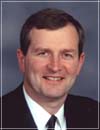
Dr. Joel R. Beeke, Puritan Reformed Theological Seminary
The Puritan Hard Drive is a massive collection of primary Puritan resources, dozens of which are very hard to find anywhere else in the world.
Any lover of Puritan literature, which, more than any other body of literature ever written, powerfully expands our minds, convicts our consciences, allures our hearts, and moves our hands, will find a treasure trove here.
- Dr. Joel R. Beeke, President and Professor of Systematic Theology and Homiletics at Puritan Reformed Theological Seminary https://puritanseminary.org/, Author of many important Reformed books (including the must read, Meet the Puritans: With A Guide to Modern Reprints, https://www.heritagebooks.org/products/Meet-the-Puritans.html), Editorial Director at Reformation Heritage Books, Editor of the Banner of Sovereign Grace Truth magazine and Pastor of Heritage Netherlands Reformed Congregation in Grand Rapids, Michigan, USA.
VIDEO INTRODUCTION TO THE PURITAN HARD DRIVE
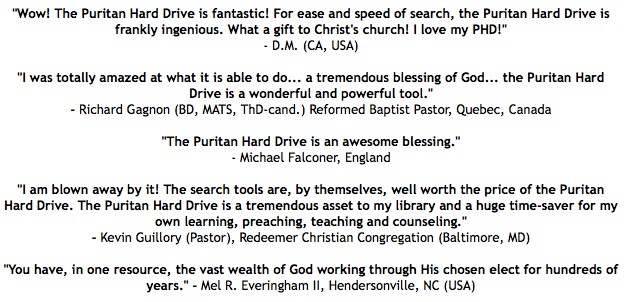

Phone Orders:
(780) 450-3730
To obtain free Reformation books, Puritan MP3s and Calvinistic videos, SWRB discount coupons, etc., add yourself to SWRB's Puritan and Reformed email list by using the form above.
Current Top Sellers
-
1
-
2Puritan Hard Drive - On Demand Edition for Windows
$2,897.97$597.97 -
3
-
4
All Authors
- Abernethie, Thomas
- Adams, Richard
- Adams, Thomas
- Alexander, Archibald
- Alleine, Joseph
- Ames, William
- Anderson, George
- Anderson, James
- Anderson, John
- Anderson, William
- Annesley, Samuel
- Anonymous
- Apple
- Arrowsmith, John
- Ash, Simeon
- Associate Presbyterian Magazine
- Associate Presbytery of Miami
- Augustine, Aurelius
- Bailllie, Robert
- Baird, Henry
- Balfour, William
- Bannerman, Douglas
- Bannerman, James
- Barker, Matthew
- Barnes, Albert
- Barrow, Reg
- Bates, Stewart
- Bates, William
- Baxter, Richard
- Bayly, Lewis
- Baynes, Paul
- Beaton, Donald
- Begg, James
- Beveridge, James
- Beza, Theodore
- Bining, Hugh
- Binnie, William
- Black, John
- Blaike, Alexander
- Blakeney, Richard P.
- Boettner, Loraine
- Bolton, Samuel
- Bond, John
- Boston, Thomas
- Bowles, Oliver
- Bradford, John
- Brainerd, Thomas
- Breckenridge, Robert J.
- Bredenhof, Wes
- Bridge, William
- Bridges, Charles
- Bridges, Walter
- Bromhall, Andrew
- Brooks, Thomas
- Brown (of Bedford), John
- Brown (of Edinburgh), John
- Brown (of Haddington), John
- Brown (of Wamphray), John
- Brown, C. J.
- Brown, David
- Brown, Henry
- Brown, P. Hume
- Brown, Thomas
- Bruce, Robert
- Buchanan, James
- Bullinger, Henry
- Bunyan, John
- Burgess, Anthony
- Burgess, Cornelius
- Burgon, John W.
- Burns, William C.
- Burroughs, Jeremiah
- Byfield, Richard
- Calamy, Edmund
- Calderwood, David
- Calvin, John
- Cameronian
- Cardell, John
- Carslaw, W. H.
- Carter, Thomas
- Carter, William
- Caryl, Joseph
- Case, Thomas
- Cawdrey, Daniel
- Chalmers, Thomas
- Chambers, Humphrey
- Chaney, James M.
- Charnock, Stephen
- Cheynell, Francis
- Chiniquy, Charles
- Chrystie, James
- Church of Scotland General Assembly
- Clarkson, Andrew
- Clarkson, David
- Close, Albert
- Cokayn, George
- Coleman, Thomas
- Coles, Elisha
- Colquhoun, John
- Commissioners, Scottish
- Conant, John
- Cooper, William
- Corbett, Edward
- Covenanted Ministers of Scotland
- Covenanted Reformed Presbyterian Publishing
- Covenanter Magazine
- Cradock, Walter
- Craighead, Alexander
- Croskery, Thomas
- Crumpler
- Cudworth, Ralph
- Cudworth, William
- Cunningham, John
- Cunningham, William
- Dabney, Robert Lewis
- Dale, James W.
- Darling, James
- Davies, Samuel
- Defoe, Daniel
- Dell, William
- Demaus, Robert
- Dexter, Henry Martin
- Dick, James
- Dick, John
- Dickinson, Jonathan
- Dickson, David
- Doolittle, Thomas
- Douglas, Thomas
- Dunlop, William
- Dunn, Samuel
- Durham, James
- Durye, John
- Edwards, Jonathan
- Edwards, Thomas
- Elgato
- Elliott, E. B.
- Ellis, John
- Enock, Esther
- Erskine, Ebenezer
- Erskine, Ralph
- Evance, Daniel
- Faber, George
- Fairbairn, Patrick
- Fairclough, Richard
- Fairley, John
- Ferguson, James
- Fisher, James
- Flavel, John
- Fleming, David Hay
- Fleming, Robert
- Forrester, Thomas
- Foster, J. M.
- Fowler, Christopher
- Foxcroft, John
- Foxe, John
- Fraser (of Alness), James
- Fulke, William
- Fuller, Andrew
- Fulton, Justin D.
- Gamble, David
- Gauden, John
- Gaussen, L.
- Gavin, Anthony
- George, R. J.
- Gibson, James
- Gibson, Samuel
- Giffin, James
- Gilfillan, James
- Gill, John
- Gillespie, George
- Gilmour, Robert
- Gipps, George
- Girardeau, John
- Glasgow, James
- Goode, William
- Goodwin, Thomas
- Gosson, Stephen
- Gouge, William
- Gower, Stanley
- Graham, John
- Graves, F. P.
- Greene, John
- Greenhill, William
- Guinness, H. Grattan
- Gurnall, William
- Guthrie, James
- Guthrie, William
- Hall, Archibald
- Hall, Henry
- Halliday, Thomas
- Halyburton, Thomas
- Hardwick, Humphrey
- Hardy, Nathaniel
- Harper, James
- Harris, Robert
- Harris, Thomas H.
- Hayward, S.
- Henderson, Alexander
- Henry, Matthew
- Herkless, John
- Herle, Charles
- Hetherington, William
- Hewison, James King
- Heyricke, Richard
- Hicks, Gaspar
- Higher Ground
- Hill, Thomas
- Hislop, Alexander
- Hodge, Charles
- Hodges, Thomas
- Hogg, James
- Hooker, Thomas
- Horton, Thomas
- Houston, Thomas
- Howie, John
- Hughes, George
- Hurst, Henry
- Hurst, John F.
- Hussey, William
- Hutchison, Matthew
- Incase
- Innes, Taylor
- James, John Angell
- Jameson, William
- Jenkyn, William
- Jesuits
- Johnson, Robert
- Johnston, John C.
- Kennedy, John
- Kentish, Richard
- Kerr, James
- Knox, John
- Kurtz, J. H.
- Landis, Robert
- Langley, John
- Lawson, J. R.
- Lee, Samuel
- Leighton, Alexander
- Ley, John
- Lightfoot, John
- Lockyer, Nicholas
- Logitech
- London Ministers
- Lorimer, Peter
- Love, Christopher
- Lusk, Robert
- Luther, Martin
- Lye, Thomas
- M'Crie, Thomas
- M'Donald, John
- M'Leod, Alexander
- M'Master, Gilbert
- M'Millan, John Jr
- M'Neilly, S. R.
- Machen, J. Gresham
- Mackenzie, Robert
- MacLean, William
- Macpherson, Hector
- Magill, George
- Manly, Jr., Basil
- Manton, Thomas
- Marbury, Edward
- Marshall, Stephen
- Martin, Hugh
- Mason, Archibald
- Maynard, John
- McCarty, Burke
- McFeeters, J. C.
- McFetridge, N. S.
- McKnight, W. J.
- McNaugher, John
- McWard, Robert
- Mede, Joseph
- Melville, James
- Mewe, William
- Microsoft
- Miller, Samuel
- Milligan, James
- Milwain, John
- Ministers of the General Synod of Ulster
- Mitchell, Alexander F.
- Morison, William
- Morris, Edward D.
- Murray, Matthew
- Nalton, James
- Nave, Orville J.
- Needler, Benjamin
- Ness, Christopher
- Nevin, Robert
- Newcomen, Matthew
- Newton, Isaac
- Newton, Richard
- Newton, Thomas
- Northern Presbytery Choir
- Oburn, William
- Original Covenanter Magazine
- Owen, John
- Palmer, B. M.
- Palmer, Herbert
- Parliament, English
- Paul, John
- Perne, Andrew
- Perrin, Jean Paul
- Peterkin, Alexander
- Peters, Hugh
- Pierce, James
- Pikering, Benjamin
- Pink, A. W.
- Platt, S. N.
- Pollok, Robert
- Pond, Enoch
- Poole, Matthew
- Powell, Vavsor
- Presbytery, Reformed
- Pressly, John T.
- Price, William
- Proffet, Nicolas
- Provan, Charles
- Puritan Divines
- Reformed Presbytery of Scotland
- Reformers, Various
- Reid, H. M. B.
- Reid, John
- Reyner, William
- Reynoldes, Edward
- Rice, N. L.
- Ridgeley, Thomas
- Roberts, Francis
- Roberts, William L.
- Robinson, Hastings
- Robinson, John
- Rollock, Robert
- Romaine, William
- Rutherford, Samuel
- Ryle, J. C.
- Salwey, Arthur
- Scipione, George C.
- Scot, William
- Scott, David
- Scudder, Henry
- Seaman, Lazarus
- Sedgwick, Obadiah
- Sedgwick, William
- Session Book of the Parish of Penninghame
- Shaw, J. W.
- Shedd, William G. T.
- Shepard, Thomas
- Shields, Alexander
- Sibbes, Richard
- Simpson, Robert
- Simpson, Sidrach
- Smeaton, George
- Smith, B. M.
- Smith, Peter
- Smith, Thomas
- Smith, William
- Speck
- Sproull, Thomas
- Spurgeon, Charles
- Spurstowe, William
- Stacy, James
- Stalker, James
- Staunton, Edmund
- Steele, David
- Steele, Richard
- Sterry, Peter
- Steven, William
- Stewart, Alexander
- Stewart, James
- Strickland, John
- Strong, William
- Sumner, Charles
- Sundry Ministers of London
- Swinnock, George
- Sylvester, Matthew
- Symington, Andrew
- Symington, William
- Synod of Dort
- Synod of the Reformed Presbyterian Church in Scotland
- Taylor, Francis
- Temple, Thomas
- Tesdale, Christopher
- Thompson, David
- Thompson, Elbert N. S.
- Thomson, James Pringle
- Thomson, John
- Thorburn, John
- Thornwell, James Henley
- Thorowgood, Thomas
- Todd, A. B.
- Toplady, Augustus
- Torshel, Samuel
- Traill, Robert
- Trapp, John
- Tuckney, Anthony
- Turretin, Francis
- Tyndale, William
- Valentine, Thomas
- Van De Velde, Abraham
- Various Authors
- Vass, L. C.
- Vernon, S. M.
- Vincent, Thomas
- Vines, Richard
- Vinke, Peter
- W. L. S. G.
- Wagner, Michael
- Walker, George
- Walker, Norman
- Walker, Patrick
- Wallace, James
- Ward, John
- Ward, Nathaniel
- Ward, Samuel
- Warren, John
- Watson, Thomas
- Welch, John
- Westminster Assembly
- Westminster Divines
- Whincop, John
- Whitaker, Jeremiah
- Whitaker, William
- White, John
- White, Thomas
- Wilkinson, Henry
- Williams, Daniel
- Willson, James M.
- Willson, James R.
- Willson, Samuel M.
- Wilson, Thomas
- Winchester, S. G.
- Winslow, Octavius
- Witherow, Thomas
- Witherspoon, John
- Withrow, W. H.
- Witsius, Herman
- Wood, James
- Woodcock, Francis
- Wycliffe, John
- Wylie, James A.
- Wylie, Samuel
- Young, Thomas
- Zanchius, Jerome





























